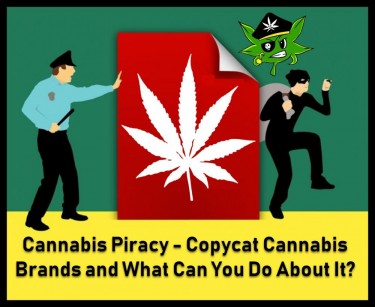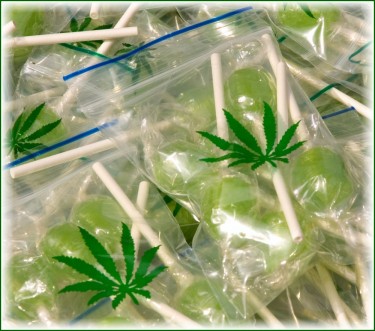
Cannabis candy brands mimic mainstream brands
Top food brands are keen to get generic THC, and they’re urging Congress to do so quickly. A number of THC brands operate a marketing structure where products have names similar to well-known brands. This leads to errors on the part of many consumers who purchase the products without knowing that they contain THC. Many of these mistakes also cause health problems for some who have too many guests. Read on as we examine what these top edible brands are agitating for and the possible backlash against the makers of such generic THC products.
Over the years, copycat cannabis products have gained prominence in the United States. Varying cannabis regulations from state to state helped them achieve this notoriety, coupled with the traditional names they bear. Some of the products are copycat in terms of packaging as they are packaged to look like common junk food like Oreos and Cheetos. It takes close observation and skill to tell the difference most of the time, which manufacturers rely on by the way.
An example of such copycat products is Stoneos, a copycat of the popular Oreos. The product is very explicit to show through its packaging that it is a copycat product of the original Oreos. However, other copycat products more subtly mimic popular brands. The packaging rarely includes a manufacturer’s name, which makes tracing such products difficult. This leaves room for these products to enter the market and entice unsuspecting consumers to buy.
A strange coalition of a dozen top food brands has scrambled to stem the threat posed by these generic THC products. Kellogg, Pepsi and General Mills are at the forefront of this coalition fighting the problem. The coalition is calling on Congress to stand up and impose appropriate sanctions to curb the spread of these THC products. They are attempting to do this by proposing an amendment to the Shop Safe Act. The Shop Safe Act, of course, seeks to reduce the availability of counterfeit products, and the Coalition wants Congress to place generic THC products in that category.
The group of companies recently wrote a letter to Congress in which they carefully identified the loopholes that allow the THC generics to work unchallenged. First off, according to the letter, the language used by Congress in the Shop Safe Act does not explicitly cover everything that can be defined as counterfeit marks. The sale, distribution and promotion of counterfeit products implying health and safety is the language used in the law. This language does not apply to products with counterfeit packaging and branding as they are not defined as counterfeit brands.
The companies believe that “famous” brands should also fall under counterfeit brands to stop the plague of copycats. Under US law, the term “famous” marks is used to protect popular marks and discourage the sale of imitators. The coalition proposed this to Congress in the letter and called for a rapid change. The coalition believes the correction must be made as soon as possible to curb the growth and exposure of generic THC products.
Other companies that have joined the coalition include The Association for Dressings & Sauces, The Juice Products Association, SNAC International, American Herbal Products Association and Corn Refiners Association.
Brands are harsh on these THC copycats as they can cause a wide range of negative effects on society. The legal age for recreational marijuana use is usually set at 21 as a guideline in most countries. Unfortunately, due to the marketing strategy of these products and legal sale in some states, children unknowingly get their hands on them. Unlike junk food, which can cause dental problems in some of these kids, these THC products have worse consequences.
Some of these children buy these products because they have the same logos, packaging, colors and brands as other products. What you are not aware of is that these products contain high percentages of THC and consuming them in large amounts has serious health consequences. Counterfeit products pose a major health risk to the safety of various consumer groups, including both children and adults. Some older consumers also find it difficult to tell the difference between some of these products and their imitators. The risk for this group of people is as great as that for children because of their reduced metabolic and mental functions.
This loophole in cannabis products needs to be taken just as seriously as the illegal sale of cannabis products. It doesn’t stop at famous brands that are still around, as some of these imitators go so far as to use famous brands that have already been phased out. Also, one of the challenges in restricting these copycat products is that they are easily sold on the internet. This makes containing its spread more difficult and means that a congressional resolution may be the only answer to the problem.
A spokeswoman for the Consumer Brands Association has probed that some companies only make packaging that resembles well-known brands. She told the Washington Post that some of these companies add subtle stoner jokes and puns to that packaging to further entice their customers. This counterfeit packaging is used by manufacturers of THC mimics to store their drug-infused products. She believes it’s high time Congress did something to stem the growth of these activities and protect the populace.
The truth is, the threat of generic THC must be stopped due to their health and safety risks. That’s what the coalition of the top food brands wants to achieve with this pressure on Congress. Time will tell if Congress agrees with the brands and resolves to take the necessary action to contain the threat.
COPYCAT BRANDING AT WEED, READ MORE…

COPYCAT CANNABIS BRANDING WHAT BRANDS CAN DO FROM IT!
OR..

BIG CANDY VS. BIG CANNABIS – WHO WILL WIN IN THE FUTURE OF PRODUCTS?

Post a comment: